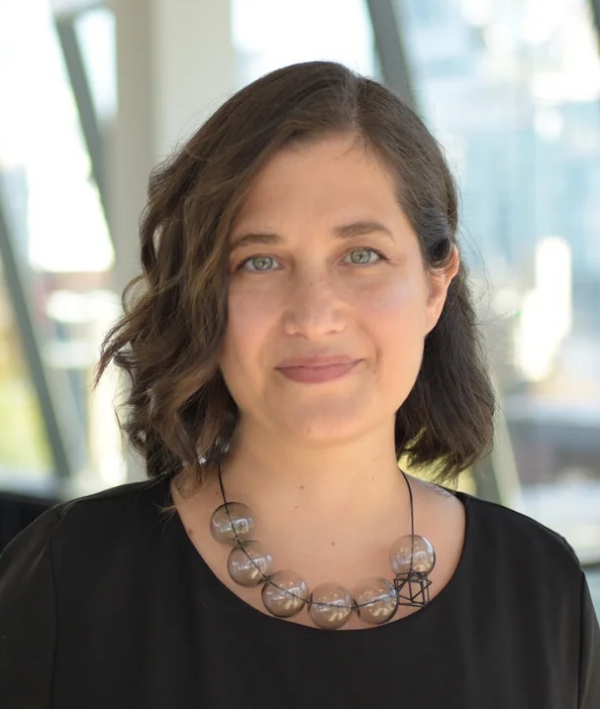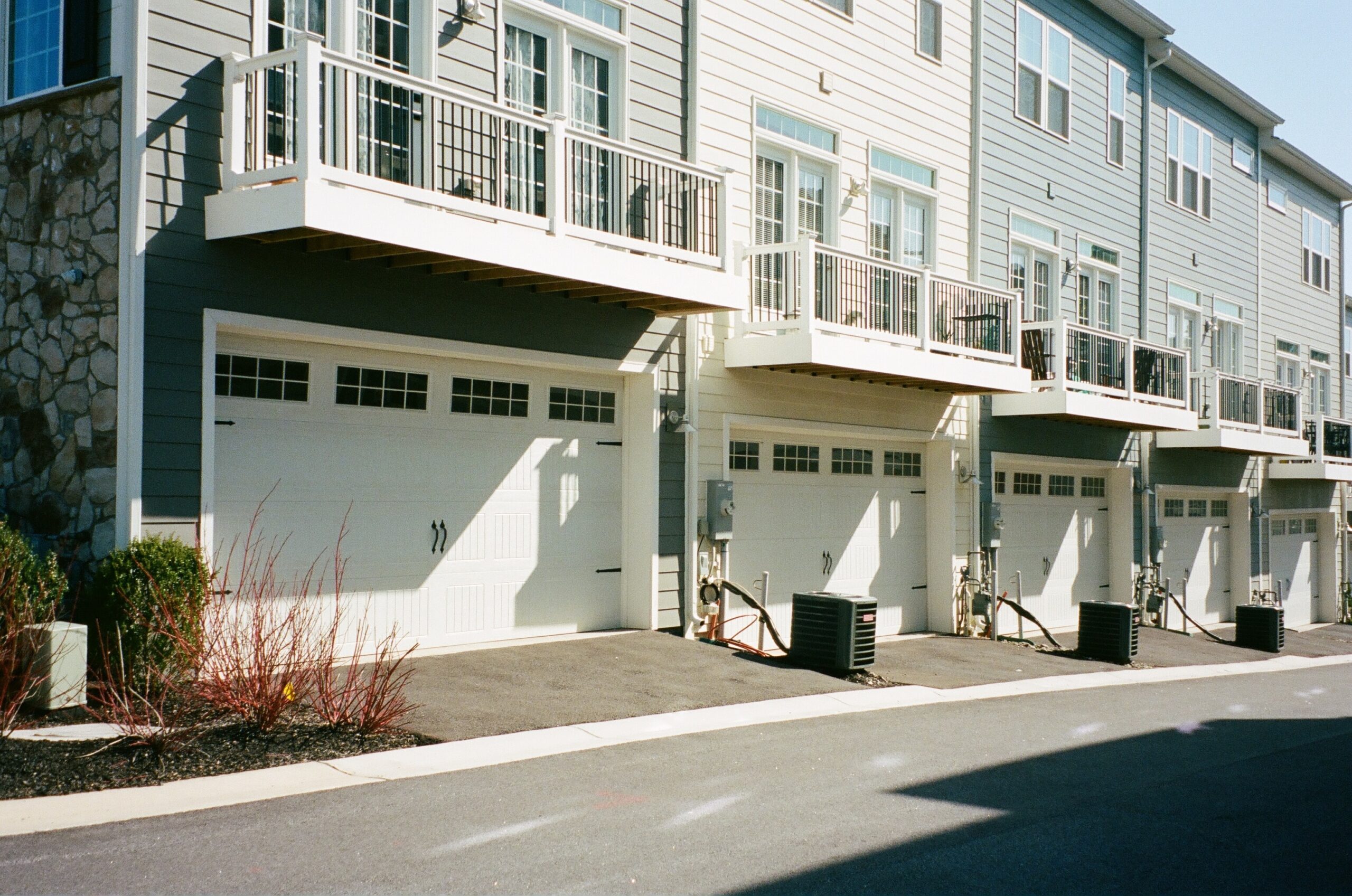Featured Guest
You’ll find this guest among our growing roll of Urban Champions.
-

Naama Blonder
Architect, Urban Designer, Urban Planner, Smart Density
-

Mariah Samji
Executive Director at Infill Development in Edmonton Association
-

Mapfumo Chidzonga
Senior Engagement Strategist , Government of Nova Scotia
5 Key
Takeaways
A roundup of the most compelling ideas, themes and quotes from this candid conversation
1. Colonial planning processes continue to harm communities.
Mapfumo “Maps” Chidzonga, a former diversity and inclusion advisor with the Halifax Regional Municipality, noted that modern land use requirements limit the number of dwellings per lot in Canada’s cities—a practice with roots in a colonial approach to property ownership which emphasizes individual property rights, rather than the communal multi-generational living scenarios which were common among Black and other racialized communities.
Naama Blonder, an architect and urban planner at Smart Density, remarked that cities often continue to enforce the same time-consuming approval process for both 20-unit and 200-unit developments, a practice which disincentives the construction of smaller units which could make housing more financially and geographically accessible to underserved communities.
2. The government needs spaces to hear directly from community.
Mariah Samji is the Executive Director of Infill Development in Edmonton Association (IDEA), a group that provides education and resources on infill development to the community and industry.
IDEA has contributed to several successful policy changes, including the addition of secondary suites, lot splitting, and becoming the first city in Canada to abolish parking minimums. To do so, they brought together stakeholders such as YEGarden Suites, Edmonton Federation of Community Leagues, and Edmonton city councillors into spaces where they could have frank conversations with many voices represented.
3. Community-based planning processes can create more accessible housing solutions.
In 2020, Halifax City Council approved the first community action plan for Beechville, a Black Nova Scotian settlement and suburban community within the Halifax Regional Municipality.
A community action plan is a process that supports residence in developing a vision for the future of their neighbourhood. As Chidzonga noted, such plans can ensure that resulting policy addressed the nuanced needs and assets. For example, Beechville has a proud and resilient community of elders who would like to age in place—a reality that is not addressed in current housing plans.
4. There are multiple heritages that must be considered in planning policy.
“Missing middle” housing has been opposed by advocates of preserving heritage homes in some communities. In response, Samji observed that creating an equitable balance between multiple heritages, particularly non-settler heritage, is a priority that has not yet been achieved. Samji noted that in Edmonton’s upcoming budget, there is an unfunded service package to have a citywide strategy conversation around a more inclusive perspective on heritage that centres Indigenous history.
5. Communities must be equipped with the tools to enact policy change.
Without access to community benefits agreements or community land trusts, which have become popular in Ontario as a means of protecting community land, culture, and heritage, Chidzonga and his colleagues have used their “very limited policy toolkit” to find creative ways to insert more of the community’s voice and presence in planning decisions.
Chidzonga called on government leaders to reframe their relationships with community away from the traditional transactional nature, which is often based on extracting knowledge and resources, and shift towards a practice of generosity—one which recognizes local leadership and builds capacity to navigate bureaucratic processes.
Full Panel
Transcript
Note to readers: This video session was transcribed using auto-transcribing software. Questions or concerns with the transcription can be directed to events@canurb.org with “transcription” in the subject line.
Full Audience
Chatroom Transcript
Note to reader: Chat comments have been edited for ease of readability. The text has not been edited for spelling or grammar. For questions or concerns, please contact events@canurb.org with “Chat Comments” in the subject lin
From Canadian Urban Institute: You can find transcripts and recordings of today’s and all our webinars at https://canurb.org/citytalk
11:55:39 From Nick Hanson : Welcome to today’s CityTalk — “How Do We Bring More Diversity to Housing Policy?”
11:58:51 From Nick Hanson, CUI : Today’s CityTalk features the following panellists:
• Naama Blonder — Architect and Urban Planner, Smart Density, Toronto
• Mapfumo “Maps” Chidzonga — Diversity and Inclusion Advisor, Halifax Regional Municipality
• Mariah Samji — Executive Director, Infill Development in Edmonton Association (IDEA)
12:01:39 From Abby S (she/her) : Hello from Tkaranto.
12:02:25 From Nick Hanson, CUI : We invite you to introduce yourself (and where you are located) in the chat.
12:02:36 From Carolyn Whitzman : Hello from unceded territory of the Algonquin Anishnawbe people, colonially known as Ottawa.
12:02:54 From Nick Hanson, CUI : When posting in the chat, make sure the blue button says “Everyone.” (If it doesn’t, you can click the little triangle and change the setting).
12:03:03 From Kellie Grant : Kellie – City of Saskatoon Heritage Planner
12:03:07 From Don Curry : Hello from Hamilton
12:03:08 From Mikaila Montgomery : Good morning from Songhees and Esquimalt territory
12:03:09 From Jamy-Ellen KLENAVIC : Hi all – tuning in from cloudy Halifax!
12:03:09 From Nik Kinzel-Cadrin : Hello from Saskatoon, and Treaty 6 territory
12:03:13 From Kary Fell : Hello from Kelowna BC
12:03:18 From Tammy Henry to Hosts and panelists : Hi from Calgary
12:03:18 From Kevin Johnson : Kelowna!
12:03:22 From Fariha Husain : Fariha Husain from Toronto with CreateTO
12:03:22 From Ranon Soans : Hello from Edmonton!
12:03:27 From Nathan Rogers : Good day from Halifax
12:03:27 From Harrison Sheremeta : Hi from Edmonton!
12:03:27 From Holly Adams : Hello everyone-Halifax NS
12:03:28 From Courtney Lockhart : Hi everyone, I’m Courtney from the Co-op Housing Federation of Canada. Calling in from Ottawa
12:03:32 From Blaire Prima : Hello from Saskatoon!
12:03:34 From Holden Blue : Good Morning from West Kelowna BC!
12:03:34 From Mark Hafen : Hello from Scarborough
12:03:35 From Johannes Bendle : Hello from Victoria
12:03:38 From Scott Erdman : Good morning from Vancouver!
12:03:41 From teresa tang : Hello from Edmonton!
12:03:42 From Leah Cogan : Coming in from the Alliance to End Homelessness Ottawa.
12:03:43 From Aline Rahbany : Hi from Toronto!
12:03:46 From Judith Norris : Hello from Tkaranto.
12:03:46 From Kholisile Dhliwayo to Hosts and panelists : Kholisile Dhliwayo, from Massachusett land.
12:03:47 From Rachel Lee : Hello from Edmonton!
12:03:48 From Sara Pour to Hosts and panelists : Sara Alinaghi Pour, Calgary
12:03:50 From Gillian Mason : Glad to be here from Scarborough, ~ 25% pop’n and land mass of Scarborough and many folks facing housing challenges.
12:03:54 From Kathryn Weicker : Good Morning from Kamloops!!
12:03:58 From Janet Gutsell : Hello from Lethbridge, land of the Blackfoot people and Metis Nation of Alberta Region III.
12:04:03 From Nicola Alexander : Hello from Timmins, Northern Ontario
12:04:12 From ANDREA BETTY : Hello from Penetanguishene, Ontario!
12:04:16 From Lester Brown : Hello from Toronto.
12:04:19 From Kae Elgie : Kae Elgie, from the traditional territory of the Haudenosaunee, Anishnaabe and Neutral Peoples., now known as Waterloo Region
12:04:19 From Meghan Doucette : Hello from Bridgewater, Nova Scotia, land of the Mi’kmaq.
12:04:21 From Nick Hanson, CUI : Expanding Housing Options in Neighbourhoods is a City of Toronto initiative to facilitate more low-rise housing in residential neighbourhoods to meet the needs of our growing city. https://www.toronto.ca/city-government/planning-development/planning-studies-initiatives/expanding-housing-options/
12:04:27 From Niki Van Vugt : Hello everyone from Kingston, Ontario!
12:04:41 From Emma Bell-Scollan : Hello, also joining from Toronto
12:04:43 From Nick Hanson, CUI : Welcome to Leandro Santos,
Research Planner, Applied Solutions
Canadian Urban Institute
12:04:45 From Nick Hanson, CUI : Leandro firmly believes that for cities to prosper, they must be created by everybody for everybody.
At CUI, Leandro has worked on a series of city-building projects related to post-COVID urban recovery, housing, and equitable engagement. As part of the CUI x Local initiative, Leandro has synthesized broad stakeholder and community feedback gathered from intensive engagements hosted throughout Windsor, Victoria, and Halifax. His work has contributed to the production of outcomes reports highlighting city-building lessons for the rest of Canada’s urban areas. As the lead for the Expanding Housing Options in Neighbourhoods (EHON) Roundtable, Leandro strives to meaningfully elevate the voices of equity-deserving groups marginalized by the urban planning process.
Leandro holds a Bachelor of Urban and Regional Planning from Toronto Metropolitan University and a Bachelor of Arts in Political Science with a concentration in International Relations from Carleton University.
12:04:55 From Maisha Barnett to Hosts and panelists : Greetings from Seattle!
12:04:56 From Jennifer Kirchner to Hosts and panelists : Hello from Saint John, New Brunswick!
12:04:58 From Stefan Hodges : Hello from Winnipeg on Treaty One territory and homeland of the Red River Metis Nation
12:05:04 From Pat Petrala : Greetings from WET windy White Rock BC Unceded lands of Semiahmoo First Nations and Coast Salish Nations. New census data most interesting ethno-cultural mix changes here. New City Council to bring on side – work cut out for us.
12:05:17 From Nick Hanson, CUI : Map of the Yellowbelt in Toronto: https://www.mapto.ca/maps/2017/3/4/the-yellow-belt
12:05:24 From Sarah King : Good morning from Saskatoon! Treaty 6 Territory and Homeland of the Metis. – Sarah King (Housing Analyst)
12:05:28 From Kavin Sheikheldin She/Her : Good Morning! Im a housing advocate and from Calgary, AB
12:06:09 From Jim Charlebois : Good morning from Saskatoon – Jim Charlebois (Development Review, Corridors)
12:06:18 From Abby S (she/her) : Does allowing change of lot use include changing existing single family homes to allow for more rental units?
12:06:32 From Leonardo Gil : Hello from Windsor!
12:07:37 From Susan Lightfoot : was freezing for me as well
12:07:53 From Vivian Lo : Freezing & breaking for me as well.
12:07:58 From Jaleen Rousseau : if connection is unstable you can sometimes improve it by turning camera off
12:08:13 From Anne Landry : Anne Landry – Good Morning! – Housing is a Human Right, Human Rights advocate in Calgary – Treaty 7 and Metis Region 3.
12:08:17 From Mary W Rowe, she/her, CUI/IUC to Jaleen Rousseau and all panelists : yup will resort to that if we need to
12:08:18 From Abby S (she/her) : Freezing for me too. And the issue of student housing (international students). We need to couple the educational opportunity with safe affordable accommodation.
12:09:17 From Naama Blonder to Hosts and panelists : @Abby, no. Rooming Housing policy was deferred by Council last year and rental rules (no more than 3 bedrooms per unit) were not addressed but Rental Replacment policy is being reviewed by the province
12:09:43 From Kate, Canadian Urban Institute to Naama Blonder(Direct Message) : Hi Naama, your comment was directed to panellists, not the audience. Could you switch your settings to “everyone”
12:09:52 From Naama Blonder : @Abby, no. Rooming Housing policy was deferred by Council last year and rental rules (no more than 3 bedrooms per unit) were not addressed but Rental Replacment policy is being reviewed by the province
12:11:00 From Nick Hanson, CUI : We are recording today’s session (and chat) and will share it online at canurb.org/citytalk-canada/
12:11:29 From Gillian Mason : How is the City of Toronto (or other cities) ensuring that those who are most affected by the housing crisis, not least the homeless, are engaged throughout the conversation in Toronto?
12:11:32 From Abby S (she/her) : @Naama thank you
12:12:48 From Holly Adams : 👏
12:13:02 From Amel TA : 👏
12:13:08 From Kholisile Dhliwayo to Hosts and panelists : 🔥Maps
12:13:10 From Ranon Soans : Mariah is a champion of infill for Edmonton!!
12:13:11 From Nick Hanson, CUI : Welcome to Mariah Samji
Executive Director
Infill Development in Edmonton Association
12:13:13 From Nick Hanson, CUI : Mariah holds two degrees, one Bachelor of Education and an After Degree in Human Geography and Urban Planning. She is the Executive Director of the Infill Development in Edmonton Association (IDEA), a non-profit organization that provides advocacy, education and resources on infill development to the community, industry, utility providers and municipalities.
Mariah has a passion for vibrant, people-centred spaces, which keeps her motivated to advocate for change in Edmonton.
12:13:42 From Colton Kirsop : Mariah was great to work with in Edmonton, a role model is how IDEA and the City collaborated on reducing barriers to infill.
12:14:01 From Sarah Woodgate : Hello There, Sarah Woodgate here from Calgary/Mokinstis. This is an important topic today to have equitable cities. I am wondering if there is a defintion of missing middle… building form mid-rise vs housing supply for average income households-affordabliliy focus?
12:14:42 From Nick Hanson, CUI : Sarah Woodgate:
12:14:43 From Nick Hanson, CUI : In 2010, architect and urban designer Daniel Parolek coined the term “Missing Middle Housing” to describe house-scale buildings with multiple units in walkable neighborhoods:
“These building types, such as duplexes, fourplexes, cottage courts, and courtyard buildings, provide diverse housing options and support locally serving retail and public transportation options. We call them “Missing” because they have typically been illegal to build since the mid-1940s and “Middle” because they sit in the middle of a spectrum between detached single-family homes and mid-rise to high-rise apartment buildings, in terms of form and scale, as well as number of units and often, affordability.”
12:15:07 From Nathan Rogers : We need to adjust subdivision bylaw to allow smaller urban lots to allow tiny homes to exist on their own parcel
12:15:37 From Abby S (she/her) to Hosts and panelists : Wow
12:16:08 From Jaleen Rousseau : how does removal of parking minimums impact public roads, especially in a community that has lots of snow and snow clearing needs
12:16:33 From Kelsey Santarossa : Hi there! Kelsey from Lakeshore here (Just outside of Windsor) One of the struggles that we are going to experience with SDUs and ADUs for infill is the pressure on wastewater infrastructure (conveyance not treatment). Have you combatted similar experiences? How did you support improvements by and for developers to bring these units to fruition?
12:16:34 From Abby S (she/her) to Hosts and panelists : @NickHanson 👍👏
12:16:38 From Sarah Woodgate : Thanks. I think there is a misconception regarding affordability with this term.
12:16:38 From Carolyn Whitzman : Good idea, @nathan!
12:16:40 From Nathan Rogers : Is the Edmonton missing middle units located on same parcels as main use or are you subdividing lots
12:17:05 From Kae Elgie : How long has Edmonton allowed everything everywhere?
12:17:36 From Ushnish Sengupta : There was a significant role for cooperative housing in Canada, but has not been recently due to lack of govt support. I believe the word ‘nonprofit” was included a recent Ontario Government Housing announcement. Would like to see Cooperatives explicitly included and supported.
12:17:40 From Harrison Sheremeta : MIssing middle units are permitted on the same parcel as the main use (i.e. garden suites, garage suites, basement suites, etc.)
12:18:09 From David Chan : Good Morning-East Waterfront Community Association located at East Bayfront, Toronto.
12:18:40 From Harrison Sheremeta : Edmonton effectively eliminated ‘single family’ zoning from its Zoning Bylaw in 2019, which now allows semi-detached housing, secondary suites and other missing middle housing in all residential zones
12:19:39 From Julian West to Hosts and panelists : Mariah – I think most mid-size and large cities could use an IDEA in their community. How did you get started and how are you funded?
12:19:51 From Sarah Woodgate : It is so exciting to see what Edmonton is able to do!
12:20:01 From Nick Hanson, CUI : Welcome to Naama Blonder
Architect, Urban Designer, Urban Planner
Smart Density
12:20:02 From Nick Hanson, CUI : Naama Blonder is the co-founder of Smart Density. Her professional practice combines the disciplines of architecture, urban planning, and urban design to bring a deeper, more realistic understanding of how cities can address housing affordability and champion inclusive neighbourhoods with more equitable access to housing. Her work has received numerous awards including the prestigious Ontario Association of Architects’ Best Emerging Practice Award for 2022.
Blonder is a subject-matter expert for the City of Toronto “Expanding Housing Options in our Neighborhoods” committee, a board member of affordable housing provider Kehilla, has co-authored the Housing Affordability Report of the Ontario Association of Architects, and served at the Design Review Panel of the City of Burlington where she provided Urban Design advice for development applications.
12:20:22 From Carolyn Whitzman : @ushnish hahaha no. And the definition of affordability in ON bears no resemblance to ability to pay- it is based on market rents.
12:22:46 From Nathan Rogers : In terms of accessibility within residential units, like as lower counter heights with leg room for wheelchairs – we’ve heard about developers installing them and then tearing them out – what does this say?
12:23:21 From Cameron Charlebois : What happened to the avenue densification policy? I do see 12 storey buildings going up on Yonge and Avenue Roard, but not many of them and they tend to be TOO big…
12:23:29 From Abby S (she/her) : It’s true that the costs to develop anything but huge projects is prohibitive.
12:24:16 From Abby S (she/her) : Also agree affordability needs to be defined in a different way. Not against market rents but % of income.
12:24:45 From Nick Hanson, CUI : Welcome to Mapfumo Chidzonga
Diversity and Inclusion Advisor
Government of Nova Scotia
12:24:55 From Judith Norris : I work in Toronto but live in Scarborough. There seem to be a lot of low rise buildings in Scarborough. There are also triplexes, high rises. But I notice they seem to be building mostly mid and high rises in Scarborough but condos now.
12:24:55 From Abby S (she/her) : The US has this in their Section 11 (I think) housing not that it works perfectly either.
12:26:29 From Kate, Canadian Urban Institute : Mapfumo Chidzonga is the new Senior Engagement Strategist for the Office of Equity and Anti-Racism Initiatives (OEA) with the Government of Nova Scotia. Previously, in his capacity as a Diversity and Inclusion Advisor for the Halifax Regional Municipality, he carved out a unique role as an embedded advisor working at the forefront of championing equity, diversity and inclusion as primary and core considerations in policymaking, city-building plans, service delivery and community engagement practices. He is passionate about building trust, equitable service, inclusive and meaningful relationships and centering the voices of underrepresented communities.
12:26:36 From Sarah Woodgate : I agree affordability should be .easjr
12:26:41 From Kate, Canadian Urban Institute : Mapfumo’s life journey started in Harare, Zimbabwe and so, his values are proudly rooted in the African worldview of Hunhu (Ubuntu) through which he was raised to embody and instill the qualities of integrity, compassion, community responsibility, empathy, respect for life and dignity of all persons. He describes himself as an aspiring change-maker committed to life-long learning. He holds a master’s degree in International Development Studies from Dalhousie University.
12:28:12 From Tafadzwa Clementine Maramura : What a journey Mapfumo 💪🏾
12:28:31 From Sarah Woodgate : I agree affordability should be measured against income bands vs cost of housing either rental or purchase price. Is this housing form increasing housing choice for households with limited choice or is it serving same populatio s
12:30:25 From Kae Elgie : So Maps, how are you ensuring there will be Quality not just quantity of new housing? Very important
12:31:01 From Stanley Lee : well, I suppose development firms are skilled at creating replacement communities?
12:31:30 From Mark Hafen to Hosts and panelists : Just increasing the housing inventory may not help those who are of limited income. Affordable housing options need to be purpose-built. That requires some partnerships with developers, non-profits, and government agencies.
12:31:40 From Sarah Woodgate : Yes! Who is the housing serving?? Housing is for people. Very important community voice and culture reflected in the housing. Very imporant study! great info!
12:31:40 From Tammy Henry to Hosts and panelists : Big problem we face is the “social and cultural” aspect being used by existing residents for exclusion.
12:31:43 From Vivian Lo : I agree with housing for seniors. There are seniors who can live independently and build a community of their own. Do we have any examples in Toronto?
12:32:12 From Nick Hanson, CUI : Do you have specific questions for the panellists? Post them in the chat, and we’ll try to answer as many as possible.
12:32:46 From Diana Gibson : Thanks for this Mapfumo, our data shows that discrimination continues to be a key driver of housing insecurity and homelessness in our region, local processes around this are critical https://communitycouncil.ca/drivers-of-homelessness-event-report-launch/
12:33:13 From Nick Hanson, CUI : African Nova Scotian: https://www.novascotia.com/travel-info/about-us/african-nova-scotia
12:33:24 From Julian West to Hosts and panelists : For Mariah – I think most mid-size and large cities could use an IDEA in their community. How did you get started and how are you funded?
12:33:42 From Jim Gendron to Hosts and panelists : Mariah. Can you tell us about the engaged Board of IDEA Directors have contributed to success in changing and advancing the housing policy that has enabled infill in mature neighbourhoods in Edmonton?
12:33:48 From Lester Brown : Many communities in our area (St. Lawrence/The Distillery) have developed aging in place committees. In some co-ops the community is getting quite older and the number of seniors is phenomenal.
12:34:02 From Carolyn Whitzman : The More Homes Built Faster Act gets rid of tenant protection from demo-viction.
12:34:04 From Kholisile Dhliwayo to Hosts and panelists : Keen to hear more about the initiatives Maps. This is a big issue across racialized communities though out North America.
12:34:10 From Amel TA : https://ansa.novascotia.ca/sites/default/files/files/African%20Nova%20Scotian%20Cultural%20Tourism%20Guide.pdf
12:34:13 From Ushnish Sengupta : Anyone following the use of PropTech by landlords to evaluate tenants and the potential for Digital Redlining and other forms of technology based discrimination. https://betakit.com/singlekey-acquires-competitor-naborly-to-take-the-risk-out-of-renting/
12:34:39 From Kae Elgie : And let’s not forget environmental concerns: if these new houses aren’t well built they will cost more to heat and cool — and repair!
12:34:53 From Lester Brown : Aging in place, however requires a vast array of services. Ontario is quite short on home service.
12:35:00 From Nick Hanson, CUI : Here are details about the (just announced) government legislation in Ontario: More Homes Built Faster Act, 2022:
https://www.amo.on.ca/advocacy/health-human-services/more-homes-built-faster-act
12:35:08 From Naama Blonder : *About affordable housing for seniors*: we are hosting a webinar on Tuesday presenting a a case study from Brooklyn with the architects (from New York): https://us02web.zoom.us/webinar/register/WN_Sr6cS4VJSTSwvf2rL2UyBQ
12:35:49 From Nick Hanson, CUI : The City of Edmonton compiled a set of innovative policies and case studies that enable and encourage medium- and high-scale infill development. https://www.edmonton.ca/public-files/assets/document?path=PDF/Copy_of_Attachment_3_-_CR_5636_-_Municipal_Tools_Review.pdf&mc_cid=ac176c3828&mc_eid=369d3fe825
12:37:00 From Kholisile Dhliwayo to Hosts and panelists : heritage means different things to different people, racialized communities are not usually at the table in deciding this. Some of it isnt physical.
12:37:37 From Kholisile Dhliwayo to Hosts and panelists : How do we become more inclusive in our definition?
12:37:37 From Kate, Canadian Urban Institute to Kholisile Dhliwayo and all panelists : Great comment Kholisile! Could you please set your chat settings to “everyone” and repost it so that attendees can see?
12:37:37 From Geoff Kettel : In Edmonton you say that everything can be buill everywhere. So it is allowed but is it actually happening? In Toronto the pre WW2 neighbourhoods allow multiplexes and they were built over 50 years ago, but not now. In fact triplexes are converted to single family homes.
12:38:36 From Sarah Woodgate : This important work is very difficult to create change needed for inclusive communities. Homeowners tend to focus on financial interests and status quo. If you had a magic wand what three things could make this work easier?
12:39:07 From Kholisile Dhliwayo : Heritage means different things to different people, racialized communities are not usually part of the table in deciding this. Sometimes its not a physical built thing but rather appartus that allows certain socialization.
12:39:14 From Cameron Charlebois : How do you build a broader community/city-wide consensus to engage-frame the local community conversations on development.
12:39:36 From Kholisile Dhliwayo : How do we allow more agency for underseved communities
12:39:43 From Tammy Henry to Hosts and panelists : Our group in the City of Calgary recently developed a “missing middle” district and there was a lot of resistance to it. Some noted that they don’t want development, they only want singles or semis that are becoming hard to attain. Thankfully, council approved this new district that could be applied for as it did not redesignate/rezone anyone’s parcel.
12:39:46 From Nathan Rogers : We definitely have some heritage being used as instrument of NIMBYism
12:40:07 From Kholisile Dhliwayo : Yes Maps ! totally agree ! communities were doing this from time!
12:40:53 From Julian West to Hosts and panelists : Question – building on the community engagement topic, there are a lot of people who simply don’t want development – often comfortably housed single detached home owners. How do you separate authentic engagement to be culturally sensitive versus engagement with people who just don’t want their community to change.
12:41:03 From Kholisile Dhliwayo : Also those community leaders should be paid at teh same rate as consultants. Their experience of community and enagement is valuable, so is their time and expertise.
12:41:14 From Ushnish Sengupta : +1 to Community Benefit Agreements for accountability to communities, becoming even more essential as so many cities are vying to become Smart Cities. https://www.frontiersin.org/articles/10.3389/frsc.2022.960400/full
12:41:46 From Stanley Lee : how likely are experts “bought off”?
12:41:51 From Gillian Mason : completely agree Kholosile: the community members are the experts in their communities.
12:41:58 From Kate, Canadian Urban Institute : Hi all! A reminder to set your chat settings to “Everyone” so that all attendees can read your comments.
12:43:20 From Ronny Yaron : My concern with new provincial legislation is that it seems to be all about increasing density and doesn’t provide funding to make housing deeply affordable and engage future residents.
12:44:28 From Mark Hafen : @Ronny Yes. Just increasing housing supply isn’t going to help those needing affordable options. Those have to be purpose-built, don’t you think?
12:44:31 From Julian West : Question – building on the community engagement topic, there are a lot of people who simply don’t want development next door – often comfortably housed single detached home owners. How do you separate authentic engagement so developments can be culturally sensitive versus engagement with people who just don’t want their community to change?
12:44:38 From Cameron Charlebois : What about Montreal’s 20-20-20 (Metropole mixte) by-law for affordability and family housing?
12:45:17 From Harrison Sheremeta : (except Calgary)
12:45:22 From Tammy Henry : In AB with the new cabinet, Housing as a ministry no longer exists
12:45:49 From Kae Elgie : @Julian, I think we need to have one-on-one difficult conversations, or maybe small groups. Jane’s Walks can help people imagine what change could look like in their neighbourhood
12:47:30 From Leandro Santos : Request the toolkit here (free): https://www.edmonton.ca/city_government/urban_planning_and_design/equity-and-the-zoning-bylaw
12:47:35 From Kholisile Dhliwayo : Have you all heard of Te Aranga? https://www.aucklanddesignmanual.co.nz/design-subjects/maori-design/te_aranga_principles
12:47:52 From Diana Gibson : @julian, Great question, it is really important to be intentional about inclusive engagement and accountable for what perspectives are being priviledged in processes.
12:48:25 From Naama Blonder : @Julian, I agree, that’s one of the biggest problems, that these owners have too much power to dictate others are not welcome to live in their street…
12:48:34 From Kholisile Dhliwayo : The principles of engaging communities as expeerts and them setting terms of engagement is important. Sometimes NIMBYs havea point. I think we have to ask for who and by who.
12:49:12 From Stanley Lee : but I thought most western governments are pretending there’s no more covid, no?
12:49:33 From Kholisile Dhliwayo : usually there are good reasons people are saying no. As professionals we are trained to ask what the no is about. Development? Density? Displacement? Cultural loss?
12:49:45 From Lester Brown : @Mark the New legislation will reduce funds available for infrastructure and affordable housing as it is reducing development charges.
12:49:56 From Julian West : @Kae – I’m a huge fan of deep, authentic engagement but I do a lot of it in my projects, but even with loads of engagement and 1:1 conversations, etc., a lot of people just don’t buy into densification, sustainable transportation alternatives, etc.
12:50:38 From Colton Kirsop : Great question Mary – yes – so much more non-profit home ownership by diverse ownership entities is so dearly needed.
12:51:54 From Kae Elgie : @Kholislie — such an important point. Listening respectfully and trying to understand other’s points is so important. And yes @Julian, some people won’t budge, but I think everyone appreciates feeling truly listened to.
12:52:43 From Nick Hanson, CUI : FYI: We are recording today’s session and will share it online at canurb.org/citytalk-canada/
12:52:51 From Tammy Henry : @Julian – we face the same challenges. We are trying alternatives to engage people that don’t usually participate in the planning process.
12:53:40 From Kholisile Dhliwayo : https://www.blacklandproject.org/
12:53:41 From m m to Hosts and panelists : Great idea, thank you.
12:53:50 From Vivian Lo : Green fields always easier and cheaper to start with. However the cost for the maintenance is more expensive — then why the government still continues to approve such plans that is not sustainable?
12:53:58 From Kholisile Dhliwayo : so true please also check this out. Same issues in the US https://www.blacklandproject.org/
12:54:19 From paul maclean to Hosts and panelists : Palmerston – Little Italy is over 50% rental & this is mostly or entirely ‘homes’ or houses – very walkable – would you describe this as a ‘complete community’? Population has been declining & median income has been increasing (ward is now $170,000 per household)
12:54:37 From Kholisile Dhliwayo : ownership structures are not set up that way
12:54:39 From Lester Brown : @Maps some Acadian areas have that form of community. My partners family live like that in Bathurst.
12:55:08 From Kholisile Dhliwayo : https://www.landloss.org/
12:55:09 From Pat Petrala : All of the links and ideas posted here would be useful – unable to copy & paste. Trying to listen and re-type web links
12:55:54 From Holly Adams : 🙌
12:56:06 From Ronny Yaron : The new legislation overrides NIMBYISM as I understand it…
12:56:09 From Amel TA : Kholisile, thank you for the links
12:56:17 From Nick Hanson, CUI : Pat P: thanks for the comment. When we post the video online, we’ll also post the chat (which should be copy and pastable)
12:57:15 From Julian West : I also think it’s important to have deep, rich, authentic consultation at the planning level – not once a new housing project pops up. Cities need to be proactive and get ahead of these issues and good engagement takes a lot of time and $$$ – we’ll never consistently get high quality engagement from developers if we’re doing it on a case by case basis
12:57:46 From Julian West : This is especially true when we’re talking about smaller developments, like missing middle
12:57:47 From Kae Elgie : totally agree @Julian.
12:59:14 From Cameron Charlebois : Check out Canada Lands triple-bottom line mandate.
12:59:21 From Stanley Lee : how much political economy do you need for the co-conditions to happen?
12:59:50 From Mariah Samji : check out our podcast episode one to hear about how IDEA started: https://www.infilledmonton.com/indevelopment-podcast
13:00:23 From m m to Hosts and panelists : How can you have affordable housing when cities tax at market value ! This has to be addressed taxation !
13:00:25 From Nick Hanson, CUI : CUI wants to hear from you! We’re asking 1000 Canadians 5 questions about what they’ve learned through the pandemic and what our priorities should be for the next 1000 days for an upcoming report.
Answer the 5 questions for better cities here: https://www.videoask.com/fl08870zk?mc_cid=764c7e3a0b&mc_eid=1f1e3fb62f
13:00:28 From Abby S (she/her) : Ai love mama’s description of community building.
13:00:37 From Abby S (she/her) : *Naama
13:00:47 From Anne Landry : Prevent loss of existing affordable, adequate, accessible housing – including in “middle” level multi-family residential buildings – END predatory financialization of housing and land – HOUSING is a HUMAN RIGHT > see THE CRISIS ENDS WITH US by the Women’s National Housing and Homelessness Network and HOMELESS ON HOMELANDS by Keepers of the Circle – https://womenshomelessness.ca/humanrightsclaims/ – HOUSING HUMAN RIGHTS Claims to the Federal Housing Advocate.
13:01:01 From Abby S (she/her) : (Damn autocorrect)
13:01:02 From Pat Petrala : Having Council members that RENT has been useful; Also seats for RENTERS & selection of appointments being sensitive to diversity on City Ho9using Advisory Committee
13:01:36 From Kevin Johnson : Cost to create housing is at an all time high. Construction cost, approval times, financing, labour cost, material costs, land cost, etc. Should this not be part of the discussion regarding housing diversity?
13:01:53 From Nick Hanson, CUI : Please join us in thanking today’s panellists:
• Naama Blonder — Architect and Urban Planner, Smart Density, Toronto
• Mapfumo “Maps” Chidzonga — Diversity and Inclusion Advisor, Halifax Regional Municipality
• Mariah Samji — Executive Director, Infill Development in Edmonton Association (IDEA)
13:02:10 From Mark Finch : Great talk…thanks everyone!
13:02:12 From Lester Brown : Thank you again. Another great discussion.
13:02:21 From Harrison Sheremeta : Thanks for the great discussion!
13:02:27 From Holden Blue : Thank you again for what is always a great conversation!
13:02:27 From Ben Larson to Hosts and panelists : Thanks. That was a great conversation!!
13:02:36 From Naama Blonder : Join me on Tuesday: (Two) New York Affordable Housing Case Studies: Senior and Infill Housing Projects: https://us02web.zoom.us/webinar/register/WN_Sr6cS4VJSTSwvf2rL2UyBQ
13:02:37 From Diana Jeliazkova : Thank you for another great discussion!
13:02:39 From Surma Das : Thanks for the great discussion!
13:02:42 From Agi Kapllani : Amazing talk and ideas! Thanks everyone 😊
13:02:43 From Nick Hanson, CUI : CUI wants to hear from you! We’re asking 1000 Canadians 5 questions about what they’ve learned through the pandemic and what our priorities should be for the next 1000 days for an upcoming report.
Answer the 5 questions for better cities here: https://www.videoask.com/fl08870zk?mc_cid=764c7e3a0b&mc_eid=1f1e3fb62f
13:02:50 From Abby S (she/her) : Thank you great city talk
13:02:51 From Kae Elgie : I’m so glad I can watch it again. Fab
13:02:52 From Ralph Cipolla : Thank you from orillia ontario
13:02:52 From m m to Hosts and panelists : Beautiful thank you its now or never!



